Aii’s ability to achieve our mission is dependent on strong connections with brand partners, implementation partners, collaborators, policymakers, and the financial community. It’s critical that we raise awareness about our work and the work of our partners. To that end, Aii is active on social media and participates in speaking engagements. Our executives are considered thought leaders in the industry.
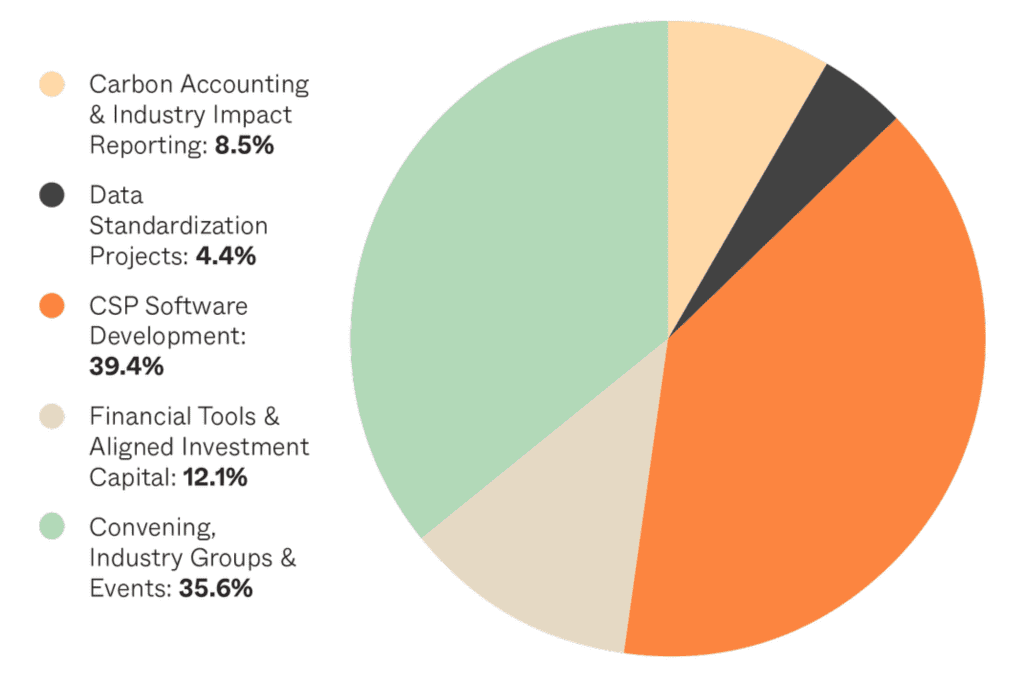
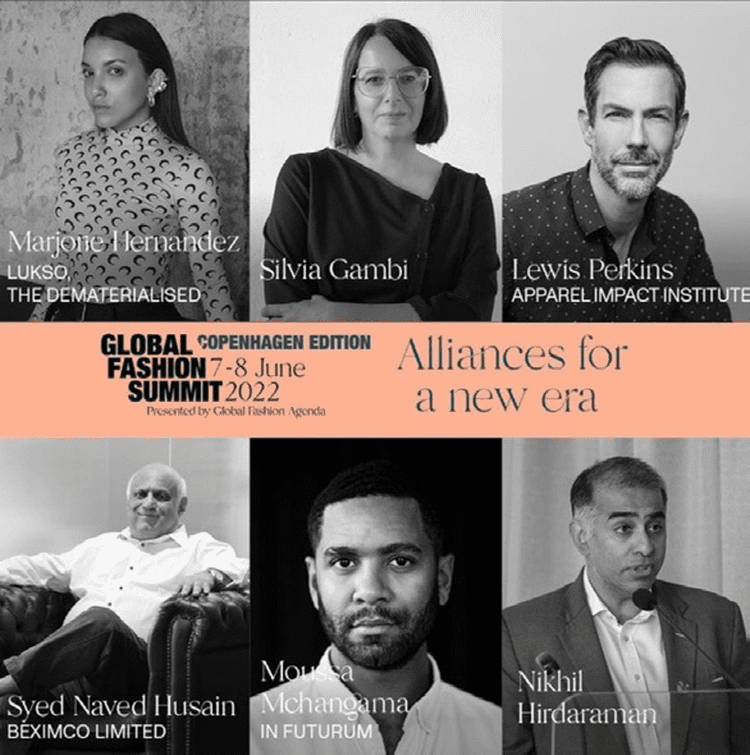
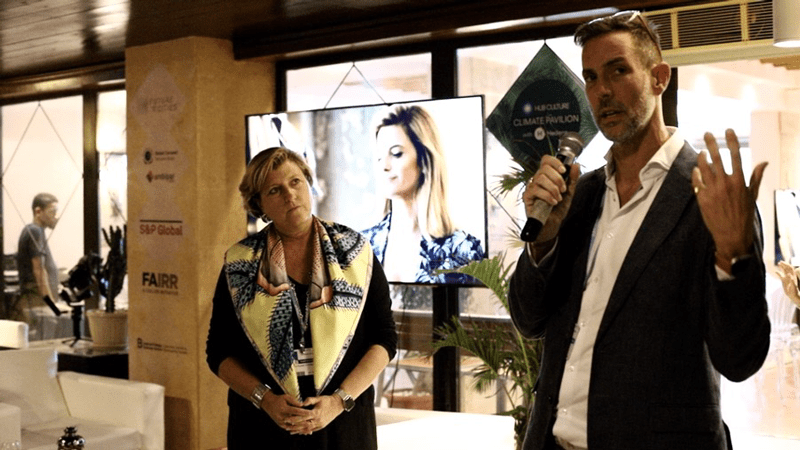
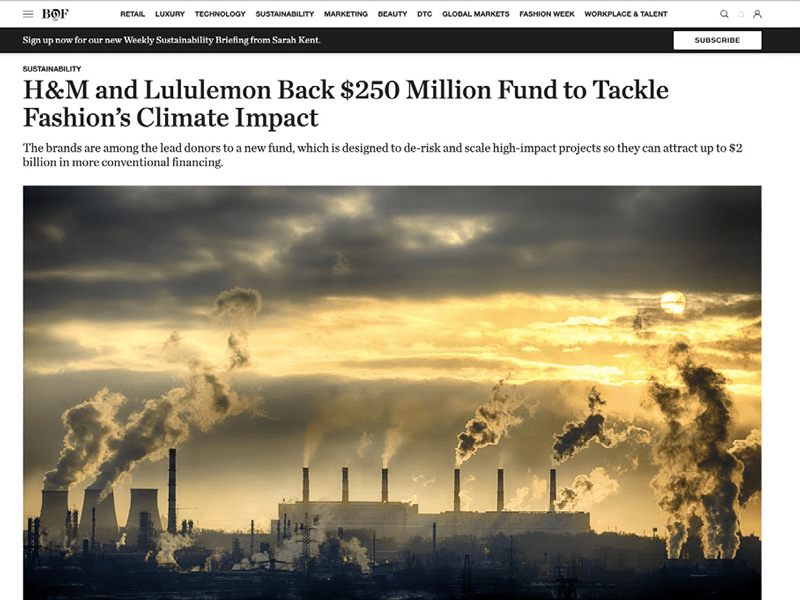
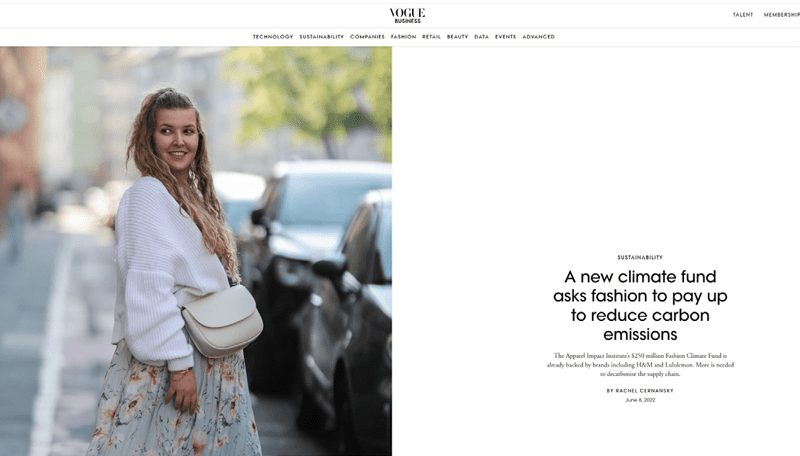
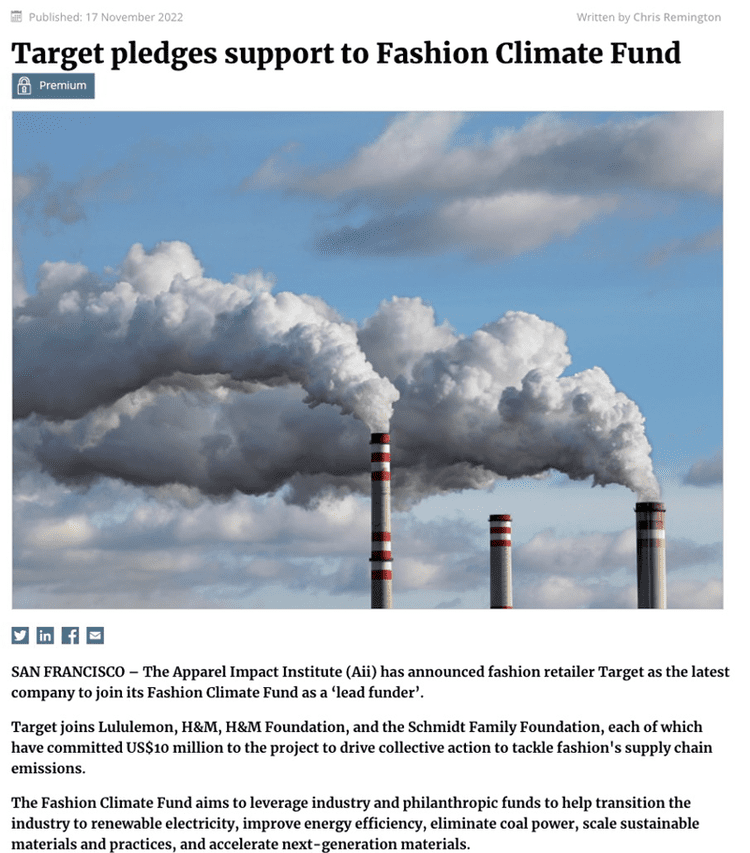
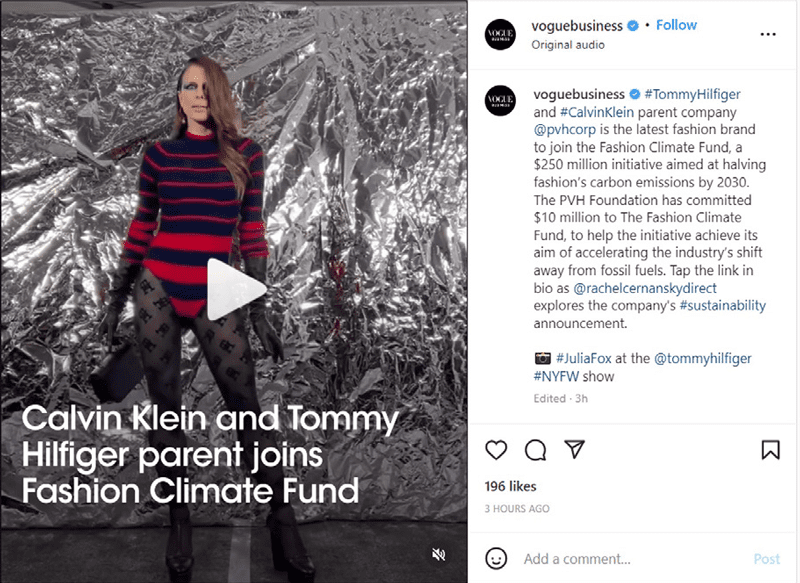
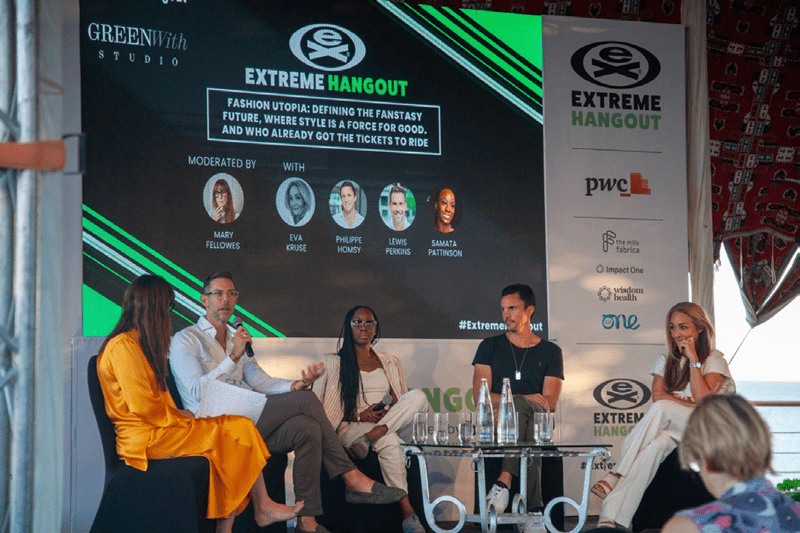
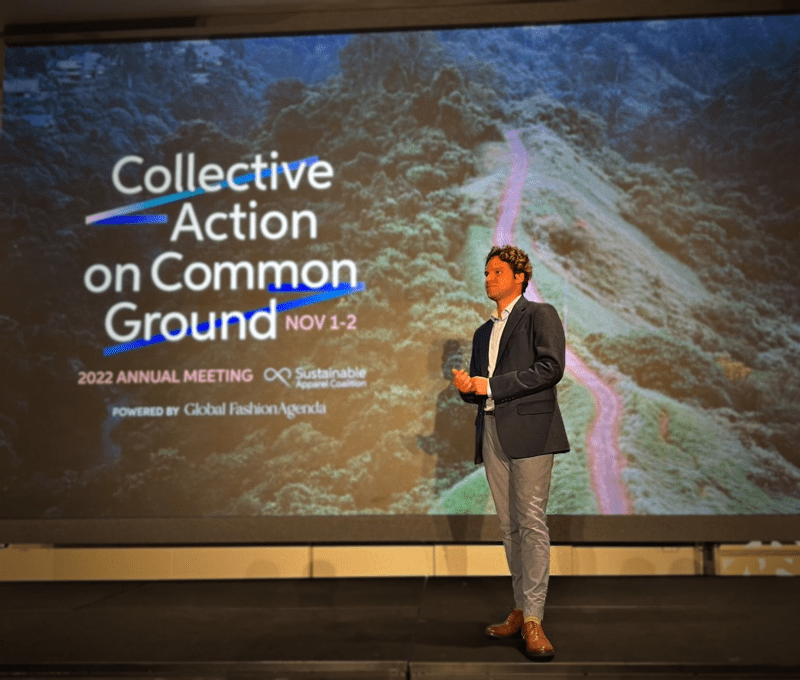
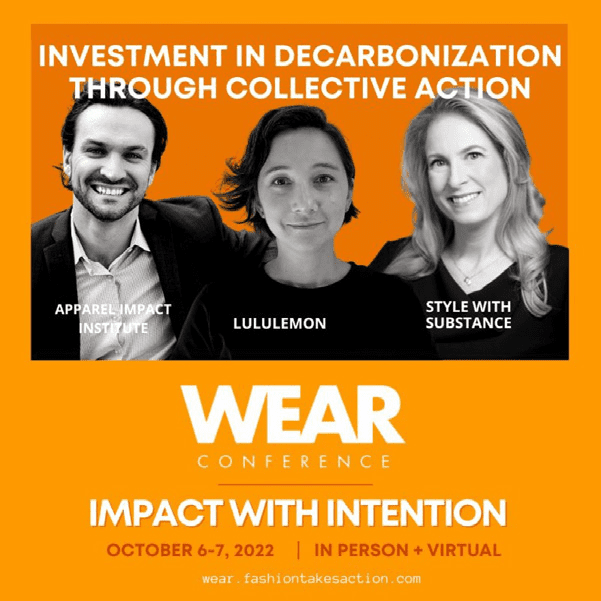
In 2021, the World Resources Institute (WRI) and Aii published Roadmap to Net Zero: Delivering Science-Based Targets in the Apparel Sector. In this report, WRI and Aii developed an estimate of annual apparel sector GHG emissions and projected these emissions out to 2030. The authors also identified the specific ways in which the apparel sector could reduce GHG emissions to stay in line with a 1.5C trajectory.
Going forward, Aii will collaborate with The Industry We Want and Michael Sadowski, research consultant to WRI,to provide an annual progress update, with the next one to be released in spring 2023.
The GFA Monitor is published by the Global Fashion Agenda and is intended as a resource to guide fashion leaders towards a net positive fashion industry. The Monitor builds on the Fashion CEO Agenda framework established in 2018 and puts forward a vision statement for the fashion industry that highlights the imperative need for social and environmental sustainability. The priorities outlined in the report present opportunities for fashion brands, retailers and manufacturers to set fact- based sustainability strategies and take action to achieve the vision.
Since 2020, Aii has published an annual impact report that transparently communicates the achievements of the last reporting year and offers a look ahead to the future roadmap to 2030.
The 2020 report serves as a baseline as we move towards successfully meeting the 45% carbon emissions reduction goal as aligned with the UNFCCC Climate Charter for Fashion and the Science-Based Targets initiative to remain under a 1.5 degrees Celsius temperature increase by 2030. In future years, we anticipate our impact report will include aggregate industry results from our “alliance” partners and other key stakeholder programs.

The vast majority of the fashion industry’s carbon emissions come directly from its use of heat, cooling, steam or purchased electricity in its supply chain factories, which are not owned and operated by fashion brands. These emissions along the supply chain are hard to measure from the farm to the final “cut and sew” stage of assembly. The sector has endeavored over the past decade to make supply chains more transparent and to identify the sources of carbon emissions along the way. Many solutions already exist, such as the Sustainable Apparel Coalition’s data sets and Higg Index Tools and the data coming from Textile Exchange’s tools and resources.
Aii is currently gathering CO2 emission reduction impact data from our own programs in factories. However, this data is not always standardized in a way that would allow for more robust and complete decision making and insights for driving solutions into the supply chain. We realize that now is the time to bring these datasets together and increase the ability to verify the data, particularly if we are to provide the industry with verified CO2 emission reduction data for tracking their public commitments, such as science-based targets.
Therefore, we are developing the Climate Solutions Portfolio Technology platform as an online registry to identify, fund and scale impact programs leading to scope 3 emissions reduction in the apparel sector. Such a registry will create greater transparency by aligning the industry’s disparate programs and providing data assurance based on clearly defined impact criteria and impact reporting on all registered programs.
Critically, many of the major apparel brands have pledged to submit programs to the registry, adding much needed transparency and coordination to the industry.
The final version of the CSP is expected to include:
The Climate Solutions Portfolio Beta will be the first iteration of the registry based on learnings from initial brand partners.
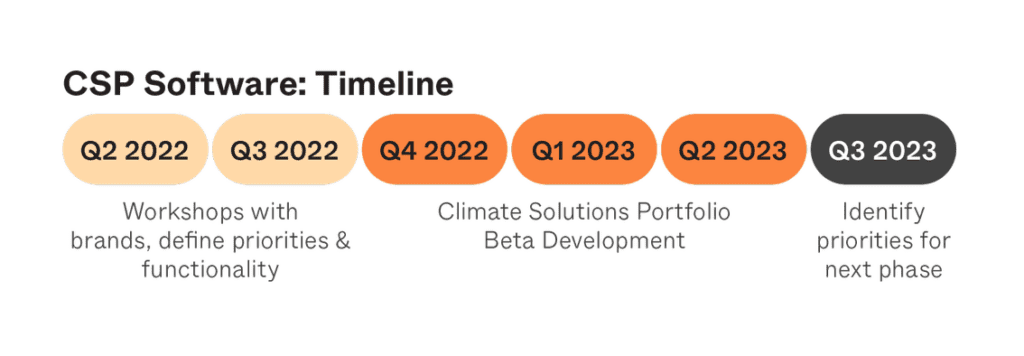

Apparel Impact Institute is building a coalition of partners to collectively fund the decarbonization of the apparel and footwear industry supply chain through a mix of capital sources.
As a first step, Aii has launched its $250M Fashion Climate Fund with philanthropic contributions from H&M Group, H&M Foundation, lululemon, the PVH Foundation, Target Corporation, and The Schmidt Family Foundation. Aii is now securing aligned investment capital of $1.75B towards financing of renewable electricity, energy efficiency, and coal phaseout (the “Climate Solutions Portfolio”), including $400M of equity investment and $1.2B of debt financing.
Many institutions are already setting targets in the trillions of dollars towards sustainable finance to address climate, but those investments are not finding readily available opportunities for deployment. We are building an inventory of investment-ready projects to decarbonize the textile, apparel, and footwear supply chain by providing project design funding, first loss funds and/or lower interest rates, aggregating smaller investments into larger check sizes and other risk mitigation measures, such as volume guarantees and concessionary capital.
We invite strategic partnerships with aligned investors — including commercial banks, development banks, and private equity and family offices — to collaboratively fund capital improvements and technological developments to decarbonize the apparel and footwear supply chain. Please contact info@apparelimpact.org for more information.
Aii will leverage our strategic network of brand partners, implementation partners, and manufacturing facilities to roll out the program and connect financing to investment opportunities.
Financing partners are invited to join the Financial Tools Working Group to share insight and align focus on the most actionable financing opportunities. Participants include brand partners, philanthropic foundations, multinational banks, and development banks.
Aii will also lead the oversight of project implementation and impact measurement. Financing collaborations that combine an optimal mix of debt, equity, and grants/concessionary capital, will be developed for each region and intervention (e.g., renewable electricity in Vietnam). Current regions of focus include Bangladesh, China, India, Indonesia, Italy, Pakistan, USA, and Vietnam.
The textiles and garment industry undergoes many social and environmental audits. Consequently, similar data is being collected several times in a number of formats, creating a burden for producers and off-takers who have to manage and, at times, pay for the audits. Most critically, a lack of standardization of the data collected drains resources from improvement and makes assessing progress more difficult.
The Initiative for Global Solidarity (IGS), a project implemented by the Deutsche Gesellschaft für internationale Zusammenarbeit (GIZ) works together with the Sustainable Apparel Coalition, ZDHC and the Apparel Impact Institute to develop an open assessment framework to implement due diligence for responsible business. Aii’s role is to support the SAC and ZDHC in the development of the environmental assessment framework.
In 2022, the project launched with a strong focus on the social and labor assessment framework. For the environmental work stream, the work plan was formulated and an industry consultation process has been finalized to inform the next steps.

The Value Change Initiative (VCI) Apparel and Footwear Working Group brings together Scope 3 experts, leading apparel sector organizations and brands to collectively identify barriers to scaling value chain decarbonization, propose and test practical solutions, and publish guidance on the consensus generated to solve some of the most pressing challenges.
In 2020, the VCI held the first working group in apparel. The outputs from these group discussions included:
The VCI reinitiated the working group in 2022 with the aim to:
After beginning discussions with VCI, Aii’s member status changed to observer. We supported VCI during the kick off of the roundtable, and in December 2022, we participated in the first VCI Apparel and Footwear Roundtable to discuss accelerating credible progress for a net zero fashion sector.